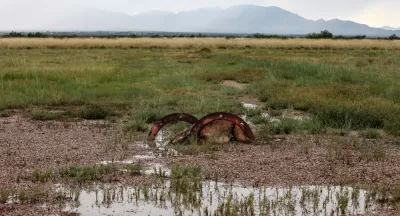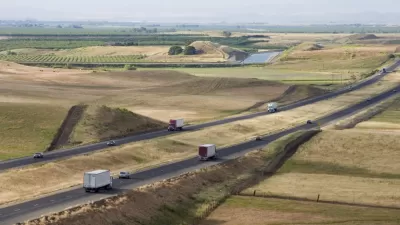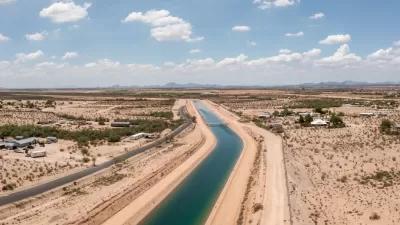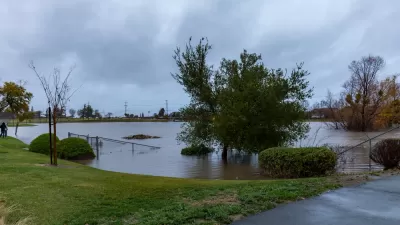For decades the arid state has required most new construction projects to demonstrate adequate water supply, but at the edge of the next dry spell, two lawmakers are trying to get rid of the rules.

In a sweeping piece that covers the history of groundwater management in Arizona, as well as the issues it will confront in the future, Dustin Gardiner of The Arizona Republic reports that in the current legislative session, Arizona's elected officials have been working on several bills that would begin to dismantle progressive planning and pumping regulations that have been in place for decades.
Most of the current regulations are rooted in the 1980 Groundwater Management Act, which is legislation that possibly enabled one of the nation's driest states to endure the most recent drought without catastrophe, and could be important as the state descends into the next dry spell. It mandates, among other things, that developers of new subdivisions in the state's most populous areas demonstrate that they have a 100-year water supply before beginning construction.
"The lawmakers have described their drive to let counties rescind the 100-year water supply rule—primarily Cochise County in southeastern Arizona —as a move to let local governments decide what’s best for themselves."
The problem, of course, is that groundwater is not a local issue, even according to the Arizona Supreme Court, which ruled in 1981 that aquifers are a shared public resource. Groundwater alone comprises 40 percent of water supply in Arizona, but as is true almost ;everywhere in the U.S., aquifers have been and are being drained faster than they can be replenished.
Once finished, the new bills may not pass the legislature, and even if they do, Governor Doug Ducey has previously vetoed legislation that would deregulate groundwater. But, Gardiner writes, "even if the bills fail, water-policy experts and environmentalists say the push for deregulation at the Capitol speaks to a broader problem," namely that the state seems willing to give up its mantle as a "role model" of groundwater management in the name of furthering development.
FULL STORY: Arizona's aquifers threatened; lawmakers push to cut groundwater rules

Maui's Vacation Rental Debate Turns Ugly
Verbal attacks, misinformation campaigns and fistfights plague a high-stakes debate to convert thousands of vacation rentals into long-term housing.

Planetizen Federal Action Tracker
A weekly monitor of how Trump’s orders and actions are impacting planners and planning in America.

In Urban Planning, AI Prompting Could be the New Design Thinking
Creativity has long been key to great urban design. What if we see AI as our new creative partner?

How Trump's HUD Budget Proposal Would Harm Homelessness Response
Experts say the change to the HUD budget would make it more difficult to identify people who are homeless and connect them with services, and to prevent homelessness.

The Vast Potential of the Right-of-Way
One writer argues that the space between two building faces is the most important element of the built environment.

Florida Seniors Face Rising Homelessness Risk
High housing costs are pushing more seniors, many of them on a fixed income, into homelessness.
Urban Design for Planners 1: Software Tools
This six-course series explores essential urban design concepts using open source software and equips planners with the tools they need to participate fully in the urban design process.
Planning for Universal Design
Learn the tools for implementing Universal Design in planning regulations.
Gallatin County Department of Planning & Community Development
Heyer Gruel & Associates PA
JM Goldson LLC
City of Camden Redevelopment Agency
City of Astoria
Transportation Research & Education Center (TREC) at Portland State University
Jefferson Parish Government
Camden Redevelopment Agency
City of Claremont





























